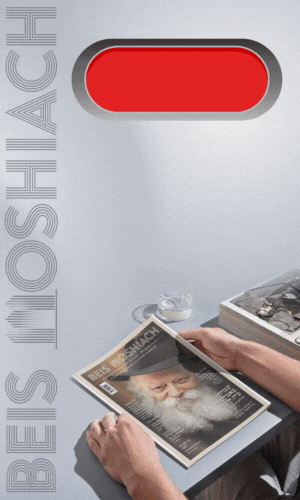Q&A: Halachos of Shabbos In the Modern Kitchen
A collection of halachic Q&As revolving around the use of common kitchen utensils and food-related issues on Shabbos, by Horav Yosef Yeshaya Braun, Mara D’asra and member of the Crown Heights Beis Din • Full Article
Drying lettuce in A Salad spinner on Shabbos
Q. Pesoles (waste or unwanted food) may not be separated from ochel (desirable food) on Shabbos due to the issur (prohibition) of the melacha of borer (selecting). When using a keli (utensil designed for separating), ochel may not be separated from pesoles either. That being the case, may a non-electrical salad spinner be used to dry lettuce on Shabbos, since it separates the lettuce, ochel, and the water, pesoles?
One of the key principles in Shulchan Aruch for determining what constitutes the act of borer which is forbidden on Shabbos, is that boreris as follows: It applies only when separating two distinct items that are mixed together, such as nuts and raisins, whereas removing an element within a particular item of food or drink that is generally considered indistinguishable, like sediment in wine or pulp in orange juice—although technically separable—is permissible.
Therefore, if there is a small amount of water left on lettuce, it’s permissible to use a salad spinner on Shabbos to get rid of the water. This is because lettuce is perfectly edible if it’s slightly wet, and most people wouldn’t mind. Drying lettuce with a salad spinner would only be considered borer to an istenis, a person who is very particular, and who absolutely couldn’t eat lettuce if it was slightly wet.
Another reason why drying lettuce is permitted is that removing moisture from lettuce is comparable to rinsing fruits and vegetables, which isn’t considered borer (for various reasons), and is permissible on Shabbos.
Although there are some contemporary authorities who are more stringent and rule against doing this, the accepted halacha is that using a salad spinner to remove moisture from lettuce on Shabbos is permissible. Halacha2Go #441*
Squeezing liquids out of solids on Shabbos
On Shabbos, one may squeeze out the excess oil from fried doughnuts prior to eating them—if the intent is simply to eliminate the excess oil, and they are not squeezing the doughnuts for the oil. Excerpt of Halacha2Go #472
Q. I cut an orange on Shabbos. May I drink the juice that oozed out?
A. Chazal decreed that we may not drink mashkin she’zavu (liquid that flowed out of a fruit) on Shabbos, gezeira shema yischot (as a precautionary rabbinical decree due to the concern that it may lead one to intentionally squeeze the fruit for its juice and commit the melacha of sechita).
Although this decree only concerns olives and grapes, or other fruit normally used for juicing, it still applies even if we decide to eat that particular fruit. However, drinking the juice that oozed out of fruit which are typically omed la’achilah (intended for eating), is permitted on Shabbos.
In light of the above, since the majority of oranges today are used for producing orange juice, one would think that were an orange to be cut for eating, it would be forbidden to drink the juice that flowed out as a result. However, since the juice did not ooze out on its own, but rather as a result of cutting the orange in order to eat it, the juice is permissible regardless of what the fruit is typically used for. However, some are stringent in this case as well. Halacha2Go #466*
Separating attached products on Shabbos
Q. May two attached containers of leben be separated on Shabbos?
A. Separating two leben containers which were connected since production is forbidden on Shabbos for two reasons: the melachaof mechatech(the prohibited act of cutting something down to a desired size), and primarily the issur of tikkun mana (the prohibition of fixing a vessel), a derivative of makeh b’patish (literally, the strike of a hammer, indicating an act of completion). This occurs at separation, since the connected items were not considered a user-friendly ‘vessel’ until they were separated.
Similarly, separating two ice pops on Shabbos that were attached since production (as opposed to having been separated previously and later reattached) poses the same two problems described above: cutting the ices to the desired size, and fashioning a useable bag of ices.
Some poskim offer various justifications to explain why the above prohibitions don’t apply in these cases, and permit separating them on Shabbos. However, one should avoid these issues and make sure to separate them before Shabbos. Halacha2Go #445*
Q. Is it permitted to program a timer for a hotplate that has a timer on it, to be turned off and on during Shabbos?
A. There’s no issue with scheduling it before Shabbos to turn off during Shabbos.
As to scheduling it to turn (back) on it depends:
If it is a food that involves a prohibition of cooking on Shabbos (i.e. any not fully cooked food or even a fully cooked food which has since cooled off, as well as a solid which will “dissolve” or “melt” into liquid), it is not allowed.
Some are stringent even if the food is fully cooked or still hot etc. unless some sort of blech is placed on the hotplate. #6256 #16254
*References are available for this Halacha on the websites: www.Halacha2Go.com and www.AskTheRav.com.
Please note that these halachos apply in general situations, if you are unsure whether the halacha applies to your particular situation, please consult a Rav.
181
Join ChabadInfo's News Roundup and alerts for the HOTTEST Chabad news and updates!











































